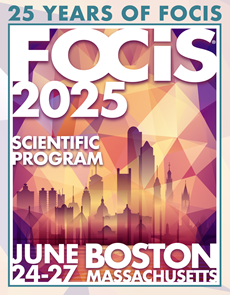Immunology Across the Ages
Session: Systems Immunology & AI
Non-linear Trajectories of Human Immune Ageing Associated with Long Term Survival
Wednesday, June 25, 2025
2:05pm - 2:20pm East Coast USA Time
Location: Salons H-K
Edoardo Fiorillo – Istituto di Ricerca Genetica e Biomedica (IRGB); Valeria Orrù – Istituto di Ricerca Genetica e Biomedica (IRGB); Maristella Steri – Istituto di Ricerca Genetica e Biomedica (IRGB); Michele Marongiu – Istituto di Ricerca Genetica e Biomedica (IRGB); Mauro Pala – Istituto di Ricerca Genetica e Biomedica (IRGB); Daniel Griffiths – University of Cambridge; Giulia Manferrari – University of Cambridge; Holly Davage – University of Cambridge; Plamena Naydenova – University of Cambridge; Tim Birkle – University of Cambridge; Oliver Knight – University of Cambridge; Rachel Bashford-Rogers – University of Cambridge; Tim Waterboer – German Cancer Research Center (DKFZ); Paul Lyons – University of Cambridge; Margarete Fabre – University of Cambridge; George Vassiliou – University of Cambridge; John Todd – Oxford University; Kenneth Smith – University of Cambridge; David Schlessinger – National Institute on Ageing; Francesco Cucca – Istituto di Ricerca Genetica e Biomedica (IRGB); Eoin McKinney – University of Cambridge
- PK
Prasanti Kotagiri, PhD
Cambridge University
Melbourne, Victoria, Australia
Presenting Author(s)
Abstract Text: Ageing is associated with increasing immune dysfunction, characterised by limited protective responses and persistent low grade inflammation. Our understanding of changes that occur and which may be adaptive or harmful remains limited. Here we quantify multiple immune traits in 10 data modalities across 6,748 individuals aged 18-107 using a total of 24,509 cross-sectional and longitudinal samples. We find highly stereotyped, non-linear changes with a consistent inflection point around 70 years of age. We applied a machine learning model to the integrated dataset to learn and independently validate 13 latent normative trajectories in the data, 12 of which vary with age. We show for two trajectories that an individual’s 'immune age’, defined as their individual deviation from the population trajectory, is associated with long term mortality independent of age, sex or comorbidity with hazard ratios greater than those seen for cancer or sex and similar to that of cardiovascular disease. Interpretation of features defining immune age trajectories indicated that precipitous contraction of the naïve B cell compartment, increased IgM+ memory differentiation and IgA+ class switch recombination were strongly associated with shorter survival. In contrast, development of poly-autoreactivity in the absence of clinical autoimmunity appears adaptive, associating with higher survival rates. Our findings systematically characterise non-linear trajectories of human immune ageing and give fundamental insights into the interacting mechanisms associated.

